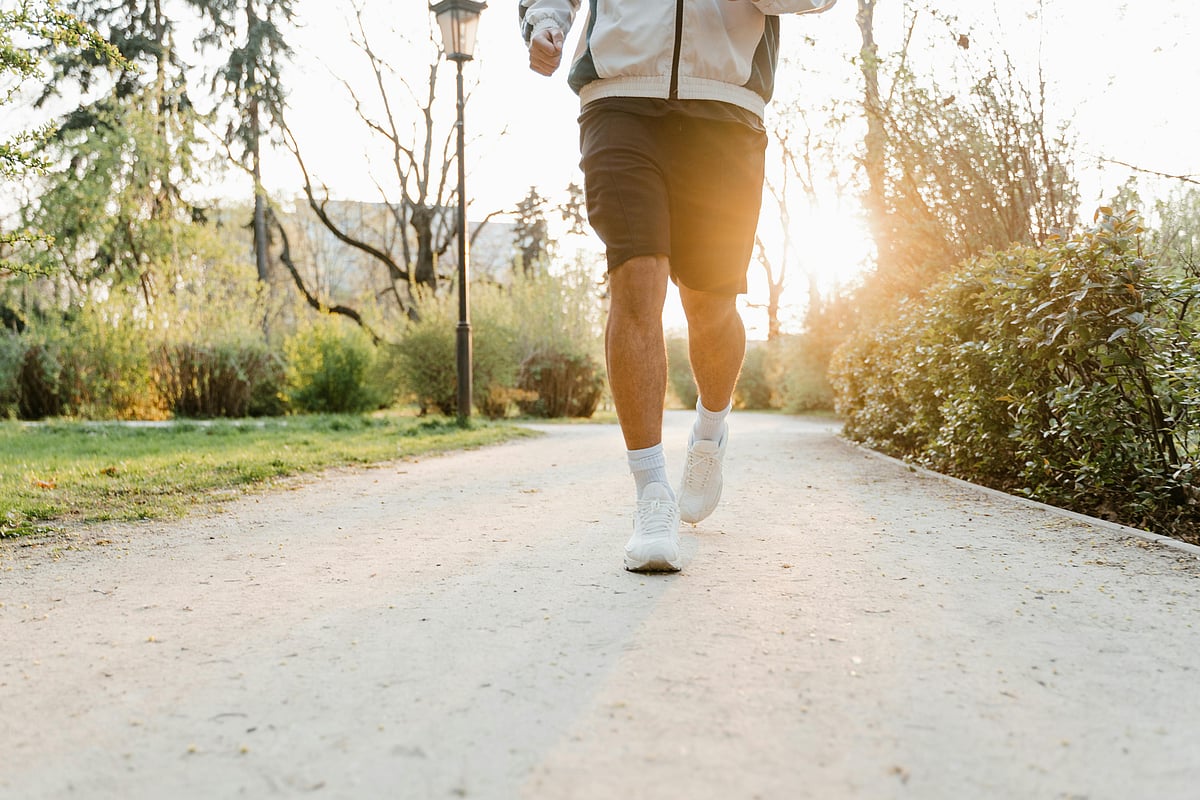10,000 steps before sunrise? Early bird gets the burn— how morning walks boost weight loss and sharpens focus
Morning walks can transform your mind and body, and set the tone for the day

You’ve heard that number so many times: 10,000 steps. It’s almost burned into your memory, but for many of us, it can feel unattainable. Often, we try to reach the goal by breaking it up throughout the day, constantly checking our fitness trackers and hoping to cross that magical milestone.
The truth is, this number isn’t just a random trend, there’s solid science behind it. And if you can hit your 10,000 steps during your morning walks, you’re already ahead of the game.
Why 10, 000 steps? The science behind the goal
Though the 10,000-step mark originally started as a catchy marketing campaign in Japan during the 1960s, it has since earned scientific credibility. Studies show walking around 7,000 to 10,000 steps daily can significantly lower risks of heart disease, diabetes, and obesity. But hitting those steps in the morning might just bring a different kind of perks.
A 2019 study published in the International Journal of Behavioral Nutrition and Physical Activity found that people who walked briskly in the morning showed better blood sugar control throughout the day. These morning walks help kickstart your metabolism early, encouraging your body to burn calories more efficiently from the get-go.
The morning advantage: Why walk early?
Walking early isn’t just about trying to evade the heat or dodge the traffic. Your body’s internal clock, or circadian rhythm, makes mornings ideal for movement. Research in the Journal of Physiology suggests that physical activity in the morning boosts insulin sensitivity and hormone regulation, improving energy use and mood.
Moreover, early exposure to natural daylight helps regulate melatonin, the sleep hormone, benefitting your sleep quality at night, which is essential for well-being in the long term.
What happens to your body, when you hit 10k steps in the morning?
A healthy and happy heart: Regular brisk walking strengthens your heart muscle, lowers blood pressure, and improves circulation. According to the American Heart Association, walking 10,000 steps daily can reduce heart disease risk by up to 30 per cent.
A sense of joy: You just feel a lot better. There's just something about sunlight and fresh air, and walking triggers the release of endorphins and serotonin, your body’s natural feel-good chemicals. The anxiety ebbs.
Sharper focus: Walking increases blood flow to the brain, boosting ognitive function. Science says so too: Studies link morning exercise to improved memory, attention, and creativity throughout the day. For instance, a study published in Exercise and cognitive function: A brief review, showed that morning aerobic exercise, including walking, enhances executive functions such as memory, attention, and creative thinking. The timing, which is morning, can optimise alertness and cognitive performance during the day.
Weight management: It can help in achieving your weight-loss goals. Morning walks, in particular, promote fat burning thanks to your body’s hormonal state after fasting overnight. One 2013 study found that exercising in a fasted state, such as morning walks before breakfast, increases fat oxidation compared to fed-state exercise, helping improve body composition and support weight loss.
Stronger immunity: The good news is that morning walks can also help your body fend off infections and inflammation too. Regular moderate exercise like walking stimulates the immune system.
How to get 10k steps on your morning walk
Plan your route: Find a safe, scenic route that excites you. A pleasant variety keeps up your motivation.
Warm up lightly: Stretch or walk slowly for 5 minutes before picking up the pace to avoid injury.
Use tech: Track your steps with a smartwatch or phone app. Once you see your progress, you will feel motivated.
Stay hydrated: Drink water before and after your walk to stay energised.
Dress smart: Wear comfortable shoes and weather-appropriate clothing.
Sign up for the Daily Briefing
Get the latest news and updates straight to your inbox
Network Links
GN StoreDownload our app
© Al Nisr Publishing LLC 2026. All rights reserved.